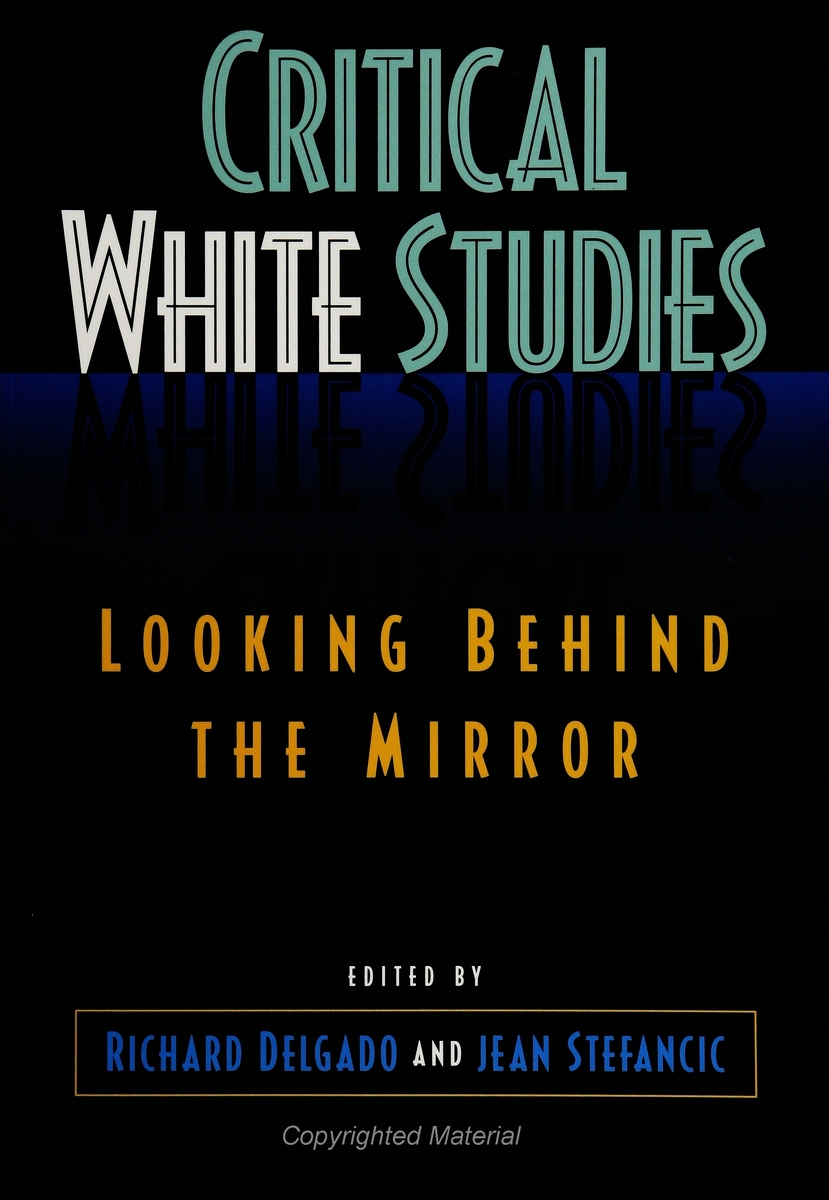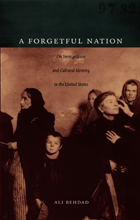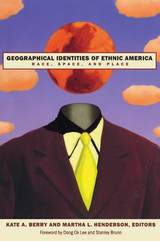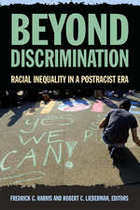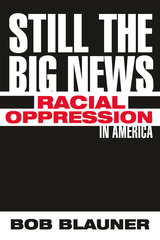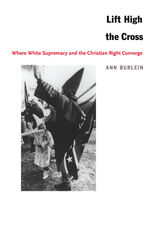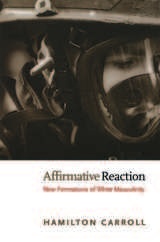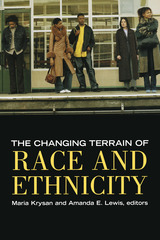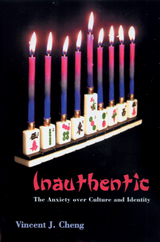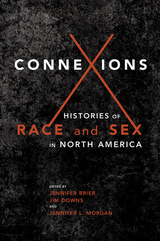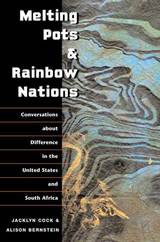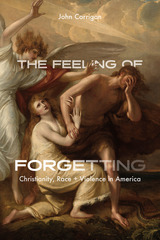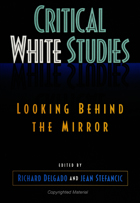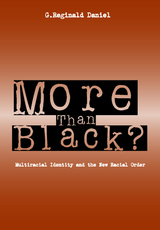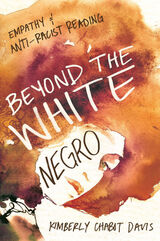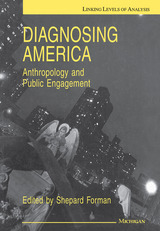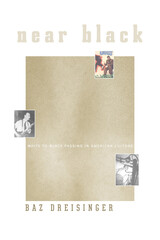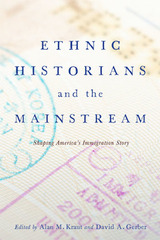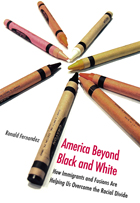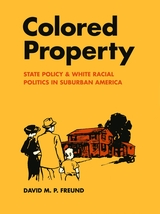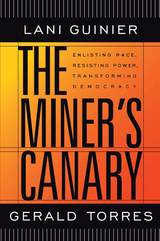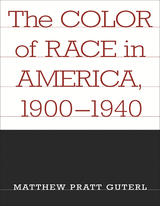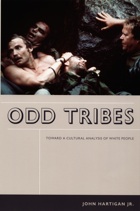CONTENTS
Acknowledgments
Introduction
Part I: How Whites See Themselves
1. The End of the Great White Male – John R. Graham
2. White Racial Formation: Into the Twenty-First Century – Charles A. Gallagher
3. The Skin We’re In – Christopher Wills
4. The Way of the WASP – Richard Brookkiser
5. Hiring Quotas for White Males Only – Eric Foner
6. Innocence and Affirmative Action – Thomas Ross
7. Doing the White Male Kvetch (A Pale Imitation of a Rag) – Calvin Trillin
8. Growing Up White in America? – Bonnie Kae Grover
9. Growing Up (What) in America? – Jerald N. Marrs
10. White Images of Black Slaves (Is What We See in Others Sometimes a Reflection of
What We Find in Ourselves?) – George Fredrickson
Synopses of Other Important Works
From the Editors: Issues and Comments
Suggested Readings
Part II: How Whites See Others
11. The White Race Is Shrinking: Perceptions of Race in Canada and Some Speculations on the Political Economy of Race Classification – Doug Daniels
12. Ignoble Savages – Dinesh D’Souza
13. Darkness Made Visible: Law, Metaphor, and the Racial Self – D. Marvin Jones
14. Playing in the Dark: Whiteness and the Literary Imagination – Toni Morrison
15. Transparently White Subjective Decisionmaking: Fashioning a Legal Remedy – Barbara J. Flagg
16. The Rhetorical Tapestry of Race – Thomas Ross
17. Imposition – Richard Delgado and Jean Stefancic
18. Racial Reflections: Dialogues in the Direction of Liberation – Derrick A. Bell, Tracy Higgins, and Sung-Hee Suh, Editors
19. The Tower of Babel – Eleanor Marie Brown
20. The Quest for Freedom in the Post-Brown South: Desegregation and White Self-Interest – Davison M. Douglas
21. “Soulmaning”: Using Race for Political and Economic Gain – Luther Wright, Jr.
22. Dysconscious Racism: Ideology, Identity, and Miseducation – Joyce E. King
Synopses of Other Important Works
From the Editors: Issues and Comments
Suggested Readings
Part III: Whiteness: History’s Role
23. Race and Manifest Destiny: The Origins of American Racial Anglo-Saxonism – Reginald Horsman
24. The Invention of Race: Rereading White Over Black – James Campbell and James Oakes
25. “Only the Law Would Rule between Us”: Antimiscegenation, the Moral Economy of Dependency, and the Debate over Rights after the Civil War – Emily Field Van Tassel
26. The Antidemocratic Power of Whiteness – Kathleen Neal Cleaver
27. Who’s Black, Who’s White, and Who Cares – Luther Wright, Jr.
28. Images of the Outsider in American Law and Culture – Richard Delgado and Jean Stefancic
29. Back to the Future with The Bell Curve: Jim Crow, Slavery, and G – Jacqueline Jones
30. The Genetic Tie – Dorothy E. Roberts
Synopses of Other Important Works
From the Editors: Issues and Comments
Suggested Readings
Part IV: Whiteness: Law’s Role
31. White Law and Lawyers: The Case of Surrogate Motherhood – Peter Halewood
32. Social Science and Segregation before Brown – Herbert Hovenkamp
33. Mexican-Americans and Whiteness – George A. Martinez
34. Race and the Core Curriculum in Legal Education – Frances Lee Ansley
35. The Transparency Phenomenon, Race-Neutral Decisionmaking, and Discriminatory Intent – Barbara J . Flagg
36. Toward a Black Legal Scholarship: Race and Original Understandings – Jerome McCristal Culp, Jr.
37. Identity Notes, Part One: Playing in the Light – Adrienne D. Davis
38. The Constitutional Ghetto – Robert L. Hayman, Jr., and Nancy Levit
Synopses of Other Important Works
From the Editors: Issues and Comments
Suggested Readings
Part V: Witeness: Culture’s Role
39. Do You Know This Man? – Daniel Zalewski
40. The Curse of Ham – D. Marvin Jones
41. Los Olvidados: On the Making of Invisible People – Juan F. Perea
42. White Innocence, Black Abstraction – Thomas Ross
43. Race and the Dominant Gaze: Narratives of Law and Inequality in Popular Film – Margaret M. Russell
44. Residential Segregation and White Privilege – Martha R. Mahoney
45. Mules, Madonnas, Babies, Bathwater: Racial Imagery and Stereotypes – Linda L. Ammons
46. The Other Pleasures: The Narrative Function of Race in the Cinema – Anna Everett
Synopses of Other Important Works
From the Editors: Issues and Comments
Suggested Readings
Part VI White Privilege
47. White Privilege and Male Privilege: A Personal Account of Coming to See Correspondences through Work in Women’s Studies – Peggy McIntosh
48. From Practice to Theory, or What Is a White Woman Anyway? – Catharine A. MacKinnon
49. Racial Construction and Women as Differentiated Actors – Martha R. Mahoney
50. The GI Bill: Whites Only Need Apply – Karen Brodkin Sacks
51. Making Systems of Privilege Visible – Stephanie M. Wildman with Adrienne D. Davis
52. Race and Racial Classifications – Luther Wright, Jr.
53. Reflections on Whiteness: The Case of Latinos(as) – Stephanie M. Wildman
54. Stirring the Ashes: Race, Class, and the Future of Civil Rights Scholarship – Frances Lee Ansley
55. The Social Construction of Whiteness – Martha R. Mahoney
Synopses of Other Important Works
From the Editors: Issues and Comments
Suggested Readings
Part VII: The Ladder of Whiteness
56. The Mind of the South – W. J . Cask
57. Old Poison in New Bottles: The Deep Roots of Modern Nativism – Joe R. Feagin
58. The First Word in Whiteness: Early Twentieth-Century European Immigration – David Roediger
59. Life on the Color Line – Gregory Williams
60. Others, and the WASP World They Aspired To – Richard Brookkiser
61. Beyond the Melting Pot – Nathan Glazer and Daniel Patrick Moynikan
62. The Economic Payoff of Attending an Ivy-League Institution – Philip J . Cook and Robert H. Frank
63. Useful Knowledge – Mary Cappello
64. Stupid Rich Bastards – Laurel Johnson Black
65. How Did Jews Become White Folks? – Karen Brodkin Sacks
66. How White People Became White – James R. Barrett and David Roediger
67. Paths to Belonging: The Constitution and Cultural Identity – Kenneth L. Karst
68. Is the Radical Critique of Merit Anti-Semitic? – Daniel A. Farber and Suzanna Sherry
Synopses of Other Important Works
From the Editors: Issues and Comments
Suggested Readings
Part VIII: The Color Line: Multiracial People and “Passing for White”
69. Passing for White, Passing for Black – Adrian Piper
70. Black Like Me – John Howard Griffin
71. The Michael Jackson Pill: Equality, Race, and Culture – Jerome McCristal Culp, Jr.
72. Did the First Justice Harlan Have a Black Brother? – James W. Gordon
73. Learning How to Be Niggers – Gregory Williams
74. What Does a White Woman Look Like? Racing and Erasing in Law – Katherine M. Franke
75. La Güera – Cherríe Moraga
76. Notes of a White Black Woman – Judy Scales-Trent
77. Our Next Race Question: The Uneasiness between Blacks and Latinos – Jorge Klor de Alva, Earl Shorris, and Cornel West
78. A Review of Life on the Color Line – Martha Chamallas and Peter M. Shane
79. What Is Race, Anyway? – Tod Olson
Synopses of Other Important Works
From the Editors: Issues and Comments
Suggested Readings
Part IX: Biology and Pseudoscience
80. The Misleading Abstractions of Social Scientists – Jerome Kagan
81. Caste, Crime, and Precocity – Andrew Hacker
82. Embodiment and Perspective: Can White Men Jump? – Peter Halewood
83. Bell Curve Liberals: How the Left Betrayed IQ – Adrian Wooldridge
84. Brave New Right – Michael Lind
85. Race and Parentage – Dorothy E. Roberts
86. The Sources of The Bell Curve – Jeffrey Rosen and Charles Lane
87. Hearts of Darkness – John B. Judis
88. Thank You, Doctors Murray and Herrnstein (Or, Who’s Afraid of Critical Race Theory?) – Derrick A. Bell
89. Dangerous Undertones of the New Nativism – Daniel Kanstroom
Synopses of Other Important Works
From the Editors: Issues and Comments
Suggested Readings
Part X: White Consciousness, White Power
90. The Rise of Private Militia: A First and Second Amendment: Analysis of the Right to Organize and the Right to Train – Joelle E. Polesky
91. The Changing Faces of White Supremacy – Loretta J . Ross and Mary Ann Mauney
92. Hatelines: Week of Sunday, April 7, 1996 – Compiled by the Center for Democratic Renewal
93. Blue by Day and White by [K]night – Robin Barnes
94. The Race Question and Its Solution – James Armstrong, Jr.
95. The American Neo-Nazi Movement Today – Elinor Lunger
96. Talking about Race with America’s Klansmen – Raphael S. Ezekiel
97. Antidiscrimination Law and Transparency: Barriers to Equality? – Barbara J . Flagg
98. White Supremacy (And What We Should Do about It) – Frances Lee Ansley
99. White Superiority in America: Its Legal Legacy, Its Economic Costs – Derrick A. Bell
Synopses of Other Important Works
From the Editors: Issues and Comments
Suggested Readings
Part XI: What Then Shall We Do? A Role for Whites
100. Treason to Whiteness Is Loyalty to Humanity – An lnterview with Noel lgnatiev of Race Traitor Magazine
101. How to Be a Race Traitor: Six Ways to Fight Being White – Noel lgnatiev
102. Rodrigo’s Eleventh Chronicle: Empathy and False Empathy – Richard Delgado
103. Obscuring the Importance of Race: The Implications of Making Comparisons between Racism and Sexism (or Other Isms) – Trina Grillo and Stephanie M. Wildman
104. White Men Can Jump: But Must Try a Little Harder – Peter Halewood
105. “Was Blind, but Now I See”: White Race Consciousness and the Requirement of Discriminatory Intent – Barbara J . Flagg
106. White Women, Race Matters: The Social Construction of Whiteness – Ruth Frankenberg
107. Resisting Racisms, Eliminating Exclusions: South Africa and the United States – David Theo Goldberg
108. Dysconscious Racism: The Cultural Politics of Critiquing Ideology and Identity – Joyce E. King
109. What Should White Women Do? – Martha R. Mahoney
110. Confronting Racelessness – Eleanor Marie Brown
111. A Civil Rights Agenda for the Year 2000: Confessions of an Identity Politician – Frances Lee Ansley
112. What We Believe – The Editors of Race Traitor Magazine
113. Segregation, Whiteness, and Transformation – Martha R. Mahoney
114. White Out – Roger Wilkins
From the Editors: Issues and Comments
Suggested Readings
About the Contributors
Index
